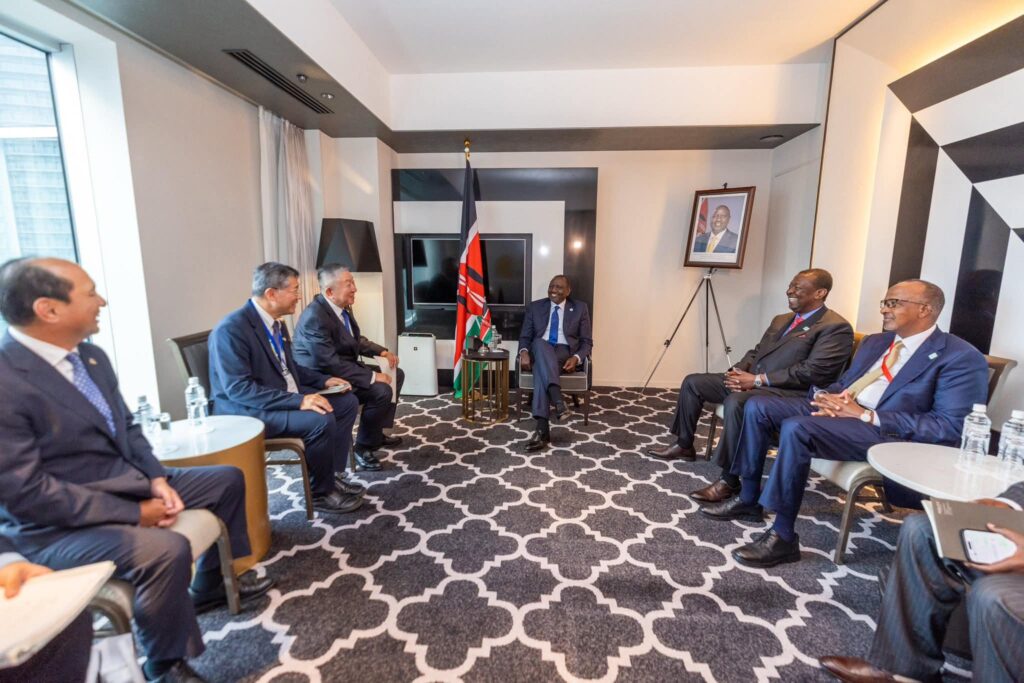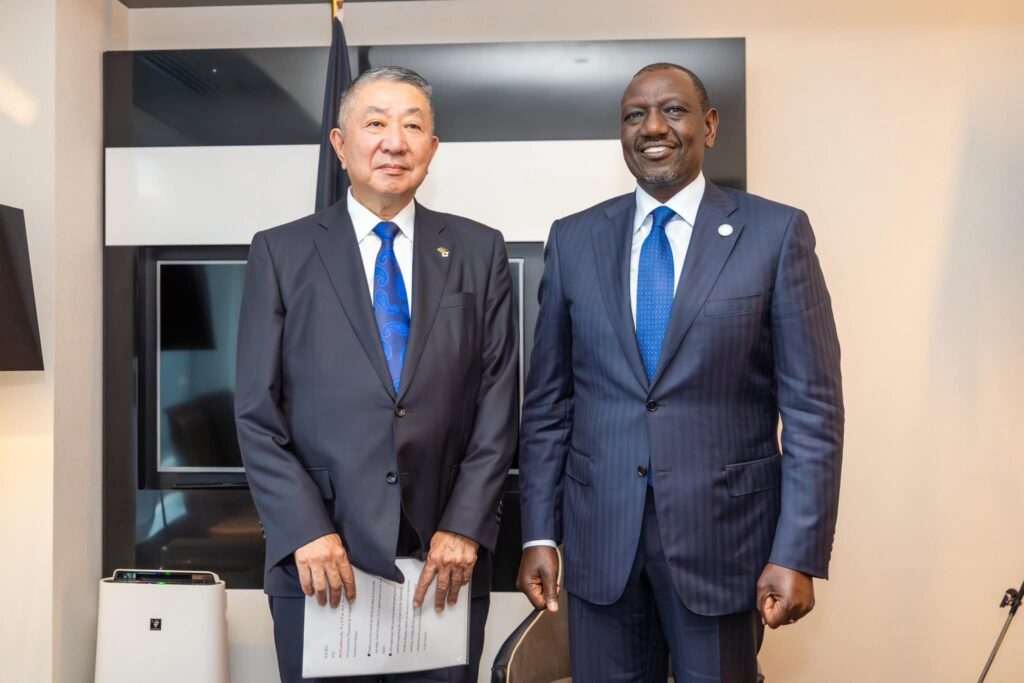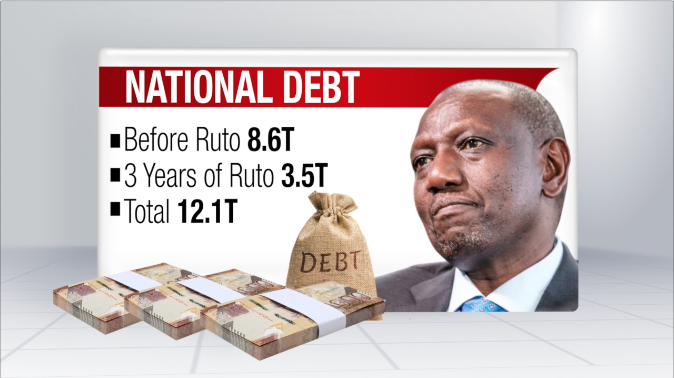
President Ruto shakes hands with a Japanese official during a bilateral meeting. Photo/William Ruto
By Daisy Okiring
Kenya has signed a Sh22 billion Samurai loan agreement with Japan to accelerate industrial growth and reduce electricity costs, in a deal sealed on the sidelines of the Ninth Tokyo International Conference on African Development (TICAD 9) in Yokohama.
The financing arrangement, backed by Nippon Export and Investment Insurance (NEXI), was signed by Prime Cabinet Secretary Musalia Mudavadi on behalf of Kenya, and NEXI Chairman and CEO Atsuo Kuroda, in a ceremony witnessed by President William Ruto and Japanese Prime Minister Shigeru Ishiba.
Funding to drive clean mobility and affordable energy
Mudavadi said the facility will strengthen Kenya’s efforts to expand its automotive industry, promote green mobility, and address inefficiencies in the power sector.
“This unique Samurai financing facility will promote our transformative program to stimulate the automotive value chain, foster innovation, and expand opportunities in research and development,” Mudavadi noted.
Under the deal, the Ministry of Investment, Trade and Industry will receive 15 billion Yen (Sh13.1 billion) to support local car assemblers and parts manufacturers, scale up electric vehicle production, and reduce reliance on imported second-hand cars and spares. Technical training will also be rolled out to prepare young Kenyans for jobs in the clean automotive sector.

Read More: Kenyans abroad targeted in government bond drive amid rising debt
The Ministry of Energy will access 5.5 billion Yen (Sh4.8 billion) to install high-efficiency transformers, reducing transmission and distribution losses that currently account for nearly a quarter of national power output. The remaining 4.5 billion Yen (Sh3.9 billion) will support general government expenditure, helping ease fiscal pressures.
“This facility will cut system inefficiencies, lower power bills for consumers, and create a competitive business environment,” Mudavadi added.
Samurai loan terms and alignment with BETA
The Samurai loan has a maturity period of seven years. The National Treasury will sign a separate agreement with NEXI to facilitate credit access for the two ministries.
According to Mudavadi, the loan complements the government’s Bottom-Up Economic Transformation Agenda (BETA), which prioritises industrial growth, clean energy, and inclusive job creation.
“This partnership underscores our proactive approach to diversify financing sources and reduce dependence on traditional, costly borrowing channels,” he said.
Ruto calls for fair global credit rating system
At the TICAD 9 plenary, President Ruto criticised international financial institutions for what he termed unfair treatment of African economies. He said Africa is often penalised with high interest rates because of flawed global credit rating systems.
“The current credit rating system disregards Africa’s unique economic realities, unfairly penalising our countries during global distress. This must change,” Ruto said.
Read More: Kenyan banks eye Ethiopia’s newly opened financial sector
He supported proposals for an Africa Credit Rating Agency, saying reforms are necessary to secure predictable, affordable financing for development.

Push for intra-African trade and agriculture investment
The President further urged African leaders to increase intra-continental trade, which currently stands below 18 percent of total exports.
“By all credible estimates, under the African Continental Free Trade Area, intra-African trade could rise by 50 percent by 2035, creating millions of jobs and opening new markets for SMEs,” Ruto said.
Read More: NSE adds Sh1 trillion as investors flee bonds for equities
He also pointed to agriculture as the continent’s most underutilised sector despite employing more than 60 percent of Africa’s population.
“This is not a failure of potential, but of investment, infrastructure, and integration,” he stressed.
Other agreements with Japan
Beyond the Samurai loan, Kenya signed a Letter of Intent with Japanese pharmaceutical firm Shionogi & Co. Ltd to accelerate access to Cefiderocol, a key antibiotic used in treating bacterial pneumonia. The agreement is supported by the Global Antibiotic Research and Development Foundation.
The Kenya Industrial Research and Development Institute also entered into a cooperation deal with Japan’s Ministry of Economy, Trade and Industry to enhance skills, technology transfer, and industrial innovation.
Japanese Prime Minister Shigeru Ishiba proposed an “Economic Region Initiative of Indian Ocean–Africa” aimed at strengthening trade ties between Japan and African nations.



